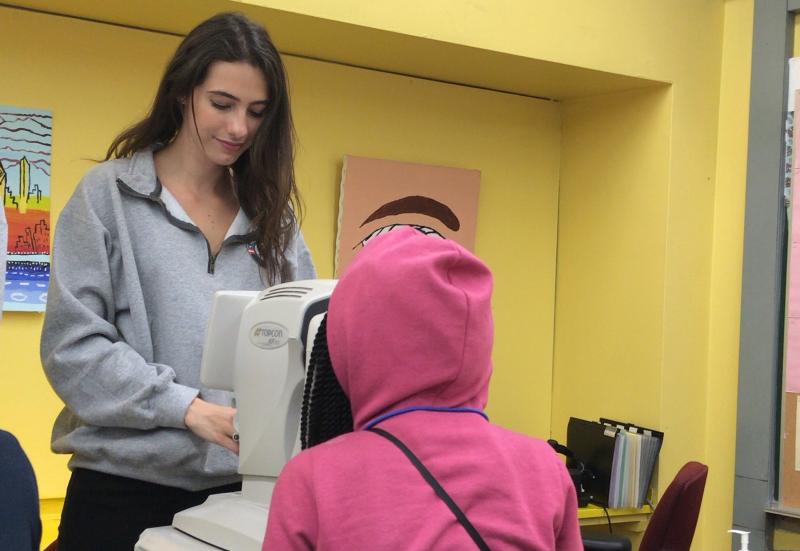Questioning your perspectives

Before I began my service year I had some experience with patients, and I truly believed that I knew everything there was to know about providing effective patient care. As a Vision Promoter at the Illinois Eye Institute at Princeton I quickly that I could not have been more wrong. By working with patients on a daily basis I found that engaging and successfully treating an individual could mean vastly different things depending on the patient. I learned that successful patient care meant so much more than providing a standard treatment and sending the patient on their way. Rather, it is a necessity to take the time to ask difficult questions and to thoroughly investigate what the patient is telling you. It requires diving into the possible socioeconomic or political factors that could be playing a role in effectively providing extended care.
Take for example a patient we worked with named Ana*. Ana was a young girl who came with her school to receive a standard Comprehensive Eye Exam. However, during her exam she was found to have swelling in the back of her eye that required immediate advanced care. While she had mentioned that her family had just immigrated to the country, I chose to ignore that information. I was given the task of contacting the girl's family to describe the urgent follow-up care that was necessary, and to ensure treatment would be received. I quickly realized the mistake that I had made in brushing over the information Ana had given me. The number we had on file had been disconnected and I had to work endlessly with her school to finally get a hold of her family. After speaking with her mother, I found that Ana had been experiencing symptoms in the past but they lacked the resources to seek care. The mother spoke very little English and was unfamiliar with public transit, so she was terrified to venture outside her community. Not only did she lack transportation, but she had 3 young children at home and no family in the area to help with child care if she took Ana to an appointment. She was living paycheck to paycheck, without health insurance, and was overwhelmed with anxiety about how she would afford such a visit.
We were ultimately able to provide the assistance that allowed Ana to receive the care she needed. However, in many other circumstances this would not have been the case. We initially failed to acknowledge the factors that were hindering patient care, and therefore did not address them before the patient left our office. In many cases, nobody would be available to put in the time and energy after the fact to provide the necessary assistance that allowed Ana to receive this care.
As a future health care professional, I am incredibly grateful that I was taught this important lesson, and that I have continued to learn every single day during my service year. We need to constantly question our perspectives and our understanding of the world. We are all life-long learners and should be striving to better ourselves, our skills, and our perspectives in order to best treat our patients and the community as a whole. As long as we keep striving to do this, we can make a difference not only in the lives of those we serve, but also our own.
*Names have been changed
This blog post was written by NHC Chicago 2017-18 member Ashley Wehrheim.
Ashley is a Vision Promoter II at Illinois Eye Institute at Princeton Vision Clinic.